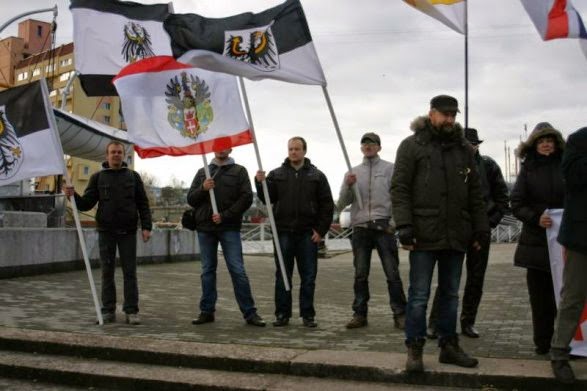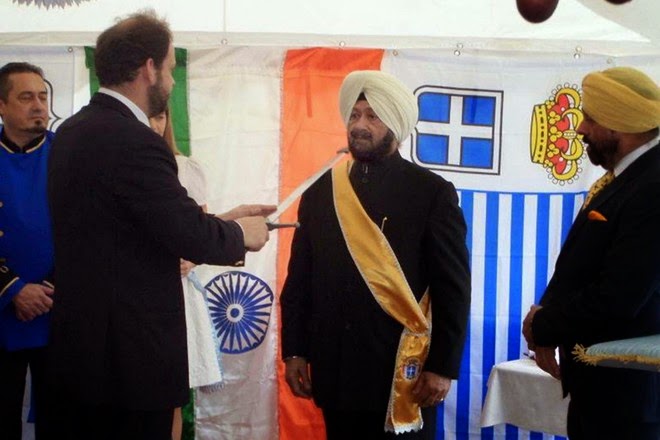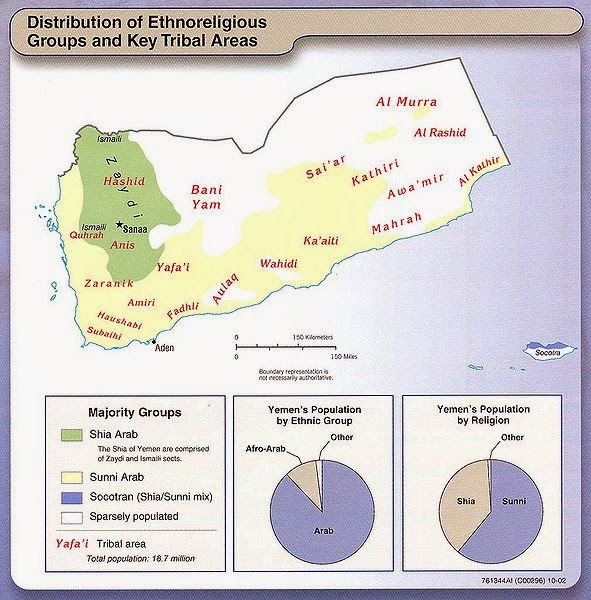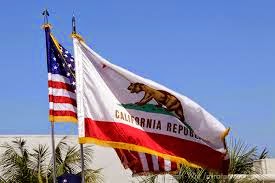EUROPE
Pro-West Party Wins in Moldova; Kremlin Sends “Humanitarian” Convoy to Transnistria. In the formerly-Soviet Republic of Moldova, parliamentary elections on November 30th handed a victory to parties favoring closer integration with the European Union (E.U.), rather than with the Russian Federation. But the pro-E.U. coalition still snagged only 41.4% of the vote, with the pro-Kremlin Socialist Party winning 21.6% and other pro-eastern parties racking up nearly as much as that. The pro-Brussels Liberal Democratic Party came in second, behind the Socialists, but will be able to build form a government with smaller coalition partners. Another pro-Moscow party, Patria, was, just before the election, embroiled in a scandal over illegal campaign funds from abroad, and its chairman, Renato Usatii, has fled to Russia; this caused many Patria voters to defect to the Socialists at the last minute. The election and its aftermath are being watched closely because Moldova’s situation is so similar to that of its eastern neighbor, war-torn Ukraine. Moldova’s pro-Moscow eastern border region of Transnistria declared itself independent in 1990 after the fall of Communism. Though that conflict has remained frozen, and Transnistria is diplomatically unrecognized, the situation is reminiscent of the situation with this year’s Russian invasions of ethnic-Russian-majority areas in Ukraine such as Crimea and the Donbas. Transnistrians have openly asked to be annexed to Russia, while Russia has tried to bully Moldova into scaling down its engagement with the E.U. and the North Atlantic Treaty Organization (NATO). Now, on the morning of December 6th, the latest reports indicate that Russia’s warnings to the Moldovan government over its reaffirmed path, may be more than bluster: the first of a new 60-truck convoy of “humanitarian aid” has arrived in Transnistria. If it is like similar convoys crossing from Russia into the self-styled Donetsk People’s Republic and Luhansk People’s Republic, then “humanitarian aid” is likely to include surface-to-air missiles, land mines, and grenade-launchers.
 |
| Transnistria or bust: the “humanitarian” convoy |
20 Dead as Terrorists Battle Russian Federal Police in Chechen Capital. A street battle between Russian police and Islamist militants left twenty people dead over the night of December 4th and 5th in Grozny, the capital of Russia’s Chechen Republic in the North Caucasus region. The violence occurred shortly before Russia’s president, Vladimir Putin, delivered his state-of-the-nation speech from Moscow. The dead included nine militants and ten police. Chechnya’s Putin-appointed, mildly-Islamist president, Ramzan Kadyrov, played down the incident, saying, “When this all started, I flew home, organized a special operation, killed the devils, held a meeting, gathered the staff needed to restore the damaged building and made it back in time to listen to the address of our national leader.” Putin implied that Western powers were behind the attack, in an attempt to dismember Russia. (Chechnya fought two bloody wars for independence after the fall of Communism, inviting a level of civilian massacre by Putin not seen in Europe since the Second World War.) But before long a video posted on the pro-Islamist Kavkaz Center website claimed responsibility for the attack on behalf of Aslan Byutukayev, a.k.a. “Emir Khamzat” of the Caucasus Emirate movement, a salafist terrorist group whose aims are broadly shared by Islamic State, which is battling Russia’s ally, Syria, not far away to the southeast.
 |
| The scene in Grozny |
 |
| Prussian flags on display in Kaliningrad |
 |
| The E.R.C.’s Junqueras doesn’t want to wait for Catalan independence. |
 |
| Merry Christmas, UKIP |
 |
| Street battles in Corsica |
 |
| Northern Italian separatists and their hero |
Principality of Seborga Names Envoy to India. The Principality of Seborga, a diplomatically unrecognized elective monarchy coextensive with a small muncipality in northwestern Italy, has appointed a Sikh resident of Dubai, in the United Arab Emirates, as its consul (in its words, “representative”) India. At the swearing-in ceremony in Patiala, in India’s Punjab state, the new envoy, S. P. Singh Oberoi, was inducted into his office by PrinceMarcello I, Seborga’s head of state. It is not clear if anyone in the Indian government noticed or cared.
 |
| Indian and Seborgan flags adorn Prince Marcello I’s induction of S. P. Singh Oberoi. |
NATO, Georgia, Others Condemn New Russian–Abkhazian Treaty. The North Atlantic Treaty Organization (NATO) is joining the international chorus condemning Russia’s November 24th treaty with the self-styled Republic of Abkhazia, which only a handful of nations recognize as sovereign. James Appathurai, NATO’s point man on South Caucasus affairs, points out that the deal, which sets in motion a merger of sorts of the two nations’ militaries, raises tensions in the region, especially amid expectations that Russia’s president, Vladimir Putin, will annex the puppet state, along with the Republic of South Ossetia, another rebel region of the Republic of Georgia it recognized diplomatically after the 2008 Russian–Georgian War, in the same way it did Ukraine’s Crimea republic earlier this year. Speaking on December 4th, Appathurai said, “NATO Secretary General expressed extreme concern over the signing of the so-called treaty between Russia and Abkhazia. There are grounds for concern in relation to South Ossetia. This so-called agreement is yet another violation of the territorial integrity of Georgia.”
MIDDLE EAST
Kurds Come Out Ahead in Major Agreement with Baghdad over Oil and Budget. The Republic of Iraq and the Kurdistan Regional Government (K.R.G.) reached a key agreement on oil and finances on December 1st, after three days of negotiations. In the agreement, the Kurdistan Region will receive 17% of the national budget and will receive 550,000 barrels of Kurdish oil per year. The autonomous region, which openly hankers for independence while it holds its own against Islamic State militants better than the central government can, contains nearly a quarter of Iraq’s population but unofficially controls more territory than that, including the strategic city of Kirkuk, the vicinity of which will produce 300,000 of the 550,000 barrels to be paid in tribute to the state.
Increasingly Militant Turkmens, Christians Boycott Kurdish Parliament. But in a further political fragmenting of Iraq’s far north, Turkmen and Christian members of the Kurdistan Regional Government’s parliament declared this week they would be boycotting the body’s session out of a feeling of exclusion from its institutions, in particular the Referendum Commission which will decide if and when to hold a plebiscite on secession from Iraq. In Iraqi Kurdistan, Turkmens and Christians have formed their own independent militias, and Christians in particular have been the victims of ethnic cleansing by Islamic State (a.k.a. ISIS). Meanwhile, the embattled self-declared quasi-state in Syrian Kurdistan is far more inclusive, with power-sharing between Kurdish, Arab, Turkmen, Assyrian (Christian), and even Chechen communities in the region. Also this week, Iraq’s Assyrian Democratic Movement announced the formation of special militias designed specifically to protect and retake Assyrian territories from ISIS. The militias, called Nineveh Plains Protection Units, are currently holding territories in non-ISIS-held parts of Nineveh province, the Assyrian heartland. David W. Lazar, an Iraqi native, who runs the American Mesopotamian Organization, said that his group is involved in directing funding from the Assyrian diaspora in the United States to the Protection Units, but he refused to answer questions about whether U.S. military or intelligence personnel are playing a role.
 |
| Nineveh Plains Protection Units |
 |
| ISIS—taking losses but still on the march |
South Yemenis Hold Mass Rallies on Independence Day, Defying Authorities. Southern Yemeni secessionists held demonstrations in the former capital, Aden, on November 29th to mark the 47th anniversary of Yemen’s independence from the United Kingdom, at which point it was partitioned into two states. (The two reunified in 1991, and many southerners would like to reestablish a separate South Yemen.) But central-government authorities prevented many leaders from attending the rallies, including Hassan Ba’oum, “spiritual leader” of al-Hirak, as the main southern—and predominantly Sunni Arab—secessionist movement is known. Police attacks on demonstrators killed at least one and injured four others. With the country in turmoil after this fall’s virtual coup d’état in the capital, Sana, by Shiite Arabs from the northern mountains called Houthis, even Islamist parties and the usually unionist socialist party which ruled South Yemen during the Cold War are directing most of their criticism at the central government and saying that al-Hirak has a point. Meanwhile, the Houthis signed a cease-fire and a prisoner-release agreement with one salafist Islamist party in Yemen, the Islah party.
 |
| Yemen’s map is complicated. |
Nigerian Military Claims All of Adamawa Wrested from Boko Haram “Caliphate.” The military in Nigeriaannounced on December 5th that its forces had recaptured the town of Mubi, in Adamawa State, from the Islamist terrorist group Boko Haram, which had held it since October. The military claims that this now frees all of Adamawa from Boko Haram control. The terrorists had renamed Mubi “Madinatul Islam” (as reported at the time in this blog) and were running it as the capital of their newly declared “caliphate” in northern Nigeria, on the model of the “Islamic State” entity in Syria and Iraq (as reported at the time in this blog). It is unclear how much territory the group still holds in neighboring Borno State.
 |
| Soon refugees from Adamawa such as these may be able to return home. |
 |
| Adan, new president of Somalia’s Interim South-Western Administration |
 |
| Mombotwa Afumba, now to be tried for treason |
Taiwan Pro-Independence Party Wollops KMT Establishment in Local Races. In local elections in the Republic of China (Taiwan) on November 29th, the ruling Nationalist party, the Kuomintang (KMT), suffered severe setbacks. From fourteen of the country’s 22 counties and county-level municipalities, the KMT now controls only six. It yielded seven to the Democratic People’s Party (D.P.P.), which favors defying Beijing by formalizing the island’s decades-long de facto independence from mainland China. As a result, Taiwan’s premier, Jiang Yi-huah, resigned, and its president, Ma Ying-jeou, quit his chairmanship of the party. The mayoralty of Taipei, the capital, was won by Ko Wen-je, a trauma surgeon and political novice who ran as an independent but supports the D.P.P. favors formal independence. Already, the KMT’s hold on power has been tenuous: it controls only a slight majority, 65, of the national parliament’s 113 seats, and at this rate they won’t survive the 2016 elections. The repercussions of these changes have yet to be felt, but so far the Communist government in Beijing, which still claims Taiwan is its own, is downplaying its significance.
 |
| Cute puppy dogs, Jake & Elwood, independence from Beijing— Taipei’s mayor-elect Ko Wen-je knows what voters like. |
Baloch Separatists Claim Responsibility for Killing 2 Pakistani Soldiers. Two separate attacks on November 30th which killed two members of Pakistan’s Frontier Corps and wounded several others were the work of the Baloch Liberation Army (B.L.A.), according to a B.L.A. statement. A B.L.A. spokesman, Jeand Baloch, said, “Our Sarmachars [freedom fighters] attacked the security forces’ convoy with R.P.G. and other automatic weapons killing at least two soldiers including a Subedar and injuring several others.” The two attacks occurred in the Tump and Panjgur regions of Balochistan, a vast province covering nearly half of Pakistan’s territory, which has been fighting for independence for decades.
 |
| Don’t fuck with the Baloch Liberation Army, okay? |
Papuans Wave Banned Flag, Stage Demonstration in Jakarta on “Independence Day.” Hundreds of members of tribal ethnic minorities from eastern Indonesia’s West Papua region staged protests in the national capital, Jakarta, on December 1st, demanding a referendum on independence for Irian Jaya and West Papua provinces, on the island of New Guinea, as a separate Republic of West Papua. The protests were marking the 53rd anniversary of the region’s declaration of independence from the Netherlands in 1961, when Indonesia was not yet fully established. Papuans were promised, then denied, a referendum at that time, and Indonesia annexed the territory with the tacit approval of the United States and United Nations. At this week’s rallies, some raised the Morning Star flag, the display of which is illegal in Indonesia.
 |
| Papuans rally for freedom in Jakarta. |
Greenland’s Narrowly Reelected Ruling Party Shuns Separatists in New Coalition. Against expectations, elections on November 28th in Greenlandhanded the governing socialist party, Siumut, a narrow victory, with a 34.3% share of votes, despite the party’s near collapse from a financial scandal and despite its moderate stance on the question of independence from Denmark. This was just over 300 votes more than the main opposition party, the far more stridently separatist Inuit Ataqatigiit (I.A.), received, with 33.2% of votes. Each now gets 11 seats in the 31-seat Greenlandic parliament. At first it seemed that Siumut, as the narrow winner, was courting I.A. with hopes of forming a government, but negotiations seemed to snag on mining issues, which are related to question of Greenland’s viability as an independent state. Now, within the past few days, Siumut has formed a coalition with two smaller anti-independence parties, the Democrat Party and the Atassut Party, with only seven parliamentary seats between them—enough for Siumut to shut I.A. and make sure their coalition partners are unambiguously junior. This puts the independence cause significantly farther from the center of Greenland politics—the opposite of what had been predicted mere weeks ago (including by this blog). 72.9% of the vast but sparsely populated territory’s 40,424 eligible voters cast ballots.
 |
| Against expectations, Aleqa Hammond and her Siumut party prevailed. |
 |
| “And another thing ...!”: Bain being arrested in 2012 |
 |
| One day ... side by side (or so hopes Sovereign California) |
 |
| Von NotHaus with one of the offending pieces of paper |
“Galt’s Gulch” Libertarian Commune in Chile Switching to Bitcoin. An 11,000-acre utopian community called Galt’s Gulch Chile (G.G.C.), modeled on the secret mountain redoubt portrayed in Ayn Rand’s 1957 libertarian novel Atlas Shrugged,has announced that it is adopting the alternative currency Bitcoin as the coin of its realm. Jeff Berwin, a United States citizen who is G.G.C.’s spokesman and a player in the early history of Bitcoin, stated recently, “I can think of no better way to invest bitcoins than on real estate, especially legally protected land with clean water and organic farmland in quickly developing markets, like Chile. ... Just like bitcoins, I think land in emerging markets will only increase in value over the coming years. The U.S. dollar and other fiat currencies will continue to collapse and we recommend those holding dollars to divest themselves of those dollars as soon as possible. We also want to show our commitment to bitcoin and accept it very happily as payment for land at Galt’s Gulch.” This comes despite strong indications from those claiming to have been hoodwinked by G.G.C. financiers that the whole enterprise is a money-making scam which grossly overstates the functionality and sustainability of the community and dissembles about what happens to the money prospective communards pay in. (Bitcoin is also a proposed currency for the Principality of the Portinha, a 2,000-square-foot rock off the coast of Madeira, an Atlantic possession of Portugal’s off the coast of Morocco, which is recognized by no one.)
 |
| Second-handers use rear entrance |






